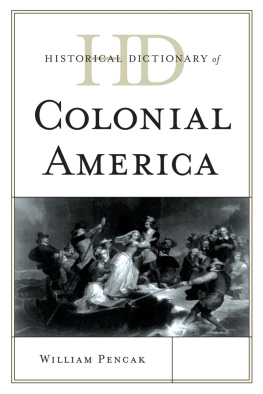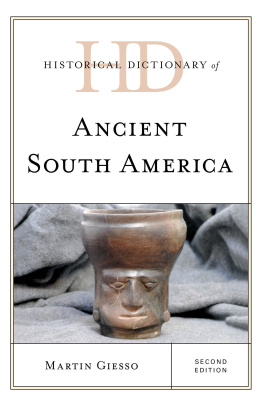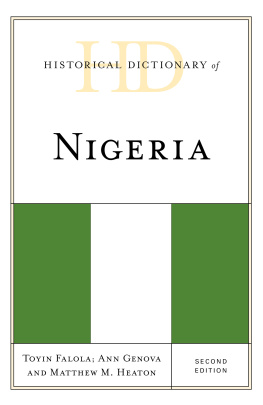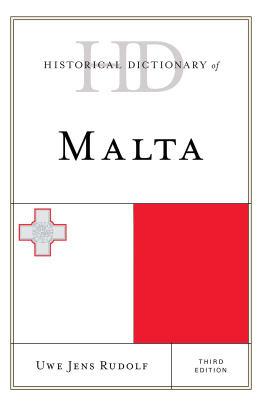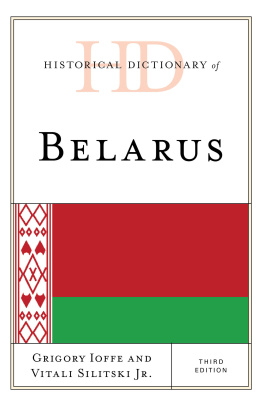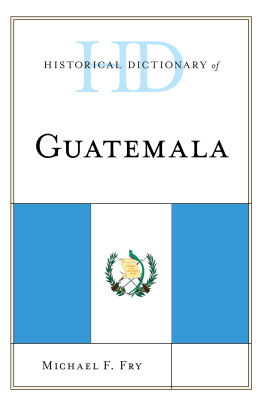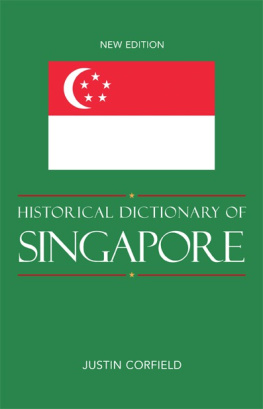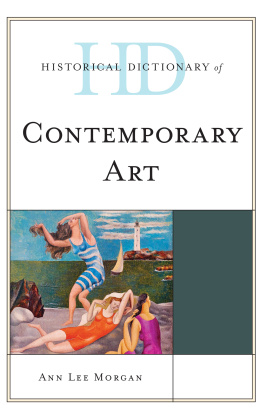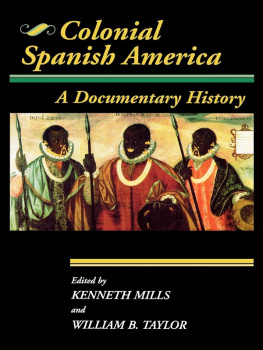William A. Pencak - Historical Dictionary of Colonial America
Here you can read online William A. Pencak - Historical Dictionary of Colonial America full text of the book (entire story) in english for free. Download pdf and epub, get meaning, cover and reviews about this ebook. year: 2011, publisher: Scarecrow Press, genre: Politics. Description of the work, (preface) as well as reviews are available. Best literature library LitArk.com created for fans of good reading and offers a wide selection of genres:
Romance novel
Science fiction
Adventure
Detective
Science
History
Home and family
Prose
Art
Politics
Computer
Non-fiction
Religion
Business
Children
Humor
Choose a favorite category and find really read worthwhile books. Enjoy immersion in the world of imagination, feel the emotions of the characters or learn something new for yourself, make an fascinating discovery.
- Book:Historical Dictionary of Colonial America
- Author:
- Publisher:Scarecrow Press
- Genre:
- Year:2011
- Rating:5 / 5
- Favourites:Add to favourites
- Your mark:
- 100
- 1
- 2
- 3
- 4
- 5
Historical Dictionary of Colonial America: summary, description and annotation
We offer to read an annotation, description, summary or preface (depends on what the author of the book "Historical Dictionary of Colonial America" wrote himself). If you haven't found the necessary information about the book — write in the comments, we will try to find it.
Historical Dictionary of Colonial America — read online for free the complete book (whole text) full work
Below is the text of the book, divided by pages. System saving the place of the last page read, allows you to conveniently read the book "Historical Dictionary of Colonial America" online for free, without having to search again every time where you left off. Put a bookmark, and you can go to the page where you finished reading at any time.
Font size:
Interval:
Bookmark:

The historical dictionaries present essential information on a broad range of subjects, including American and world history, art, business, cities, countries, cultures, customs, film, global conflicts, international relations, literature, music, philosophy, religion, sports, and theater. Written by experts, all contain highly informative introductory essays of the topic and detailed chronologies that, in some cases, cover vast historical time periods but still manage to heavily feature more recent events.
Brief AZ entries describe the main people, events, politics, social issues, institutions, and policies that make the topic unique, and entries are cross-referenced for ease of browsing. Extensive bibliographies are divided into several general subject areas, providing excellent access points for students, researchers, and anyone wanting to know more. Additionally, maps, photographs, and appendixes of supplemental information aid high school and college students doing term papers or introductory research projects. In short, the historical dictionaries are the perfect starting point for anyone looking to research in these fields.
Historical Dictionaries of U.S. Politics and Political Eras
Jon Woronoff, Series Editor
From the Great War to the Great Depression , by Neil A. Wynn, 2003.
Civil War and Reconstruction , by William L. Richter, 2004.
Revolutionary America , by Terry M. Mays, 2005.
Old South , by William L. Richter, 2006.
Early American Republic , by Richard Buel Jr., 2006.
Jacksonian Era and Manifest Destiny , by Terry Corps, 2006.
ReaganBush Era , by Richard S. Conley, 2007.
KennedyJohnson Era , by Richard Dean Burns and Joseph M. Siracusa, 2008.
NixonFord Era , by Mitchell K. Hall, 2008.
RooseveltTruman Era , by Neil A. Wynn, 2008.
Eisenhower Era , by Burton I. Kaufman and Diane Kaufman, 2009.
Progressive Era , by Catherine Cocks, Peter C. Holloran, and Alan Lessoff, 2009.
Gilded Age , by T. Adams Upchurch, 2009.
Political Parties , by Harold F. Bass Jr., 2010.
George W. Bush Era , by Richard S. Conley, 2010.
United States Congress , by Scot Schraufnagel, 2011.
Colonial America , by William Pencak, 2011.
Historical Dictionary of Colonial America
William Pencak
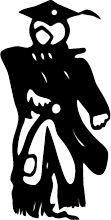
The Scarecrow Press, Inc.
Lanham Toronto Plymouth, UK
2011
Published by Scarecrow Press, Inc.
A wholly owned subsidiary of The Rowman & Littlefield Publishing Group, Inc.
4501 Forbes Boulevard, Suite 200, Lanham, Maryland 20706
http://www.scarecrowpress.com
Estover Road, Plymouth PL6 7PY, United Kingdom
Copyright 2011 by William Pencak
All rights reserved . No part of this book may be reproduced in any form or by any electronic or mechanical means, including information storage and retrieval systems, without written permission from the publisher, except by a reviewer who may quote passages in a review.
British Library Cataloguing in Publication Information Available
Library of Congress Cataloging-in-Publication Data
Pencak, William, 1951
Historical dictionary of colonial America / William Pencak.
p. cm. (Historical dictionaries of U.S. politics and political eras)
Includes bibliographical references.
ISBN 978-0-8108-5587-8 (cloth : alk. paper) ISBN 978-0-8108-7527-2 (ebook)
1. United StatesHistoryColonial period, ca. 16001775Dictionaries. 2. Great BritainColoniesAmericaHistoryDictionaries. I. Title.
E188.P45 2011
973.2dc22 2011006199
 The paper used in this publication meets the minimum requirements of American National Standard for Information SciencesPermanence of Paper for Printed Library Materials, ANSI/NISO Z39.48-1992.
The paper used in this publication meets the minimum requirements of American National Standard for Information SciencesPermanence of Paper for Printed Library Materials, ANSI/NISO Z39.48-1992.
Printed in the United States of America
For the wonderful secretaries, advisers, and technical support people at Penn State who have been my friends and uncomplainingly helped me with my research and teaching over the past 28 years. Thank you Dave Horner, Vicki Blazer, Sandi Moyer, Mary Jo Schillings, Jennifer Gilbert, Rose Niman, Tiffany Mayhew, Darla Franks, Karen Eberling, Ben Whitesell, Toni Mooney, Karen Weaver, Lynn Moyer, Ed DuMond, Judy Shawley, Judy Donohue, Barb Stutzman, Anne Rowe, the late Dinah Geiger, Phyllis Martin, and Ruth Bodkin, with apologies to anyone I may have left out.
And also for the librarians at Penn State who have made my work possible: Sally Small, Deena Morganti, Marge Kruppenbach, Binh Le, Marge Hindley, Jeannette Ullrich, Eric Novotny, and Dan Mack.
Editors Foreword
Looking back on it, the colonial era may seem deceptively simple and straightforward, especially from a distance of several centuries. As they taught us in school, a new continent was discovered in the form of America, it was colonized by sturdy settlers, and the frontier was rolled back creating what has become the worlds mightiest power. And this is true as far as it goes, barring the messy details. The land was coveted by several empires, mainly the British, French, and Spanish, but also the Dutch, the Portuguese, and even the Swedes. The colonists had even more origins than that, coming from all corners of Europe. And they imported slaves from Africa. Alas, there were already inhabitants when they arrived, namely what were then loosely called Indians, and there was relatively little concern about what happened to them. There were, indeed, the original thirteen colonies, but these were sometimes royal and sometimes proprietary, and even they were splintered by rivalries among immigrants of different sources, social classes, economic status, and especially religious convictions, as well as quite ordinary quarrels over land, money, and power. What became the United States was hardly united at that time, and the situation was often muddled, to say the least.
This gives special significance to the Historical Dictionary of Colonial America , which covers the period from the arrival of the first immigrants in 1607and actually long before, since it is necessary to see the broader contextand follows this for a century and a half to about 1763, when the revolutionary period begins. For those who only have vague memories of what they did learn in school, this may be quite unsettling as the picture is much more variegated, even confusing, and the colonists no longer look quite so good. This can already be sensed in the chronology by the reference to numerous wars and conflicts even before the revolution. But the introduction is crucial in sorting out the divisions and conflicts and providing the general background. Next the dictionary section fills in the details, whether fairly straightforward historical ones or messier aspects that involve ethics and morality. These focus on the more prominent persons, places, institutions, and events, this including the wars and lesser conflicts. There are also entries that deal with the major colonial empires and some, particularly interesting, that give a feel for the times, such as the economy and trade or family and religion. Those wishing to take their studies further can turn to the bibliography, which is very extensive and where the titles are carefully organized by topics, making it extremely useful and easy to navigate.
It would be hard to find a more suitable author for this volume than William A. Pencak. For the past 35 years, he has been teaching American history, with an emphasis on the colonial period, this mainly at Penn State University, where he is professor of history, but at other outstanding schools as well. He has written and edited numerous books and articles in the field and was the founding editor of Explorations in Early American Culture , the journal that is now Early American Studies , of the McNeil Center in Philadelphia. With such a guide, it will be much easier for readers to understand what really was a rather complicated and sometimes confusing period that led up to the formation of the United States out of anything but united colonies.
Font size:
Interval:
Bookmark:
Similar books «Historical Dictionary of Colonial America»
Look at similar books to Historical Dictionary of Colonial America. We have selected literature similar in name and meaning in the hope of providing readers with more options to find new, interesting, not yet read works.
Discussion, reviews of the book Historical Dictionary of Colonial America and just readers' own opinions. Leave your comments, write what you think about the work, its meaning or the main characters. Specify what exactly you liked and what you didn't like, and why you think so.

